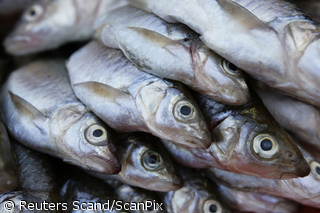The EU has decided to turn to Russia for some of its oil needs to reduce the continent's dependence on OPEC.
Published:
16 October 2000 y., Monday
A long-term agreement with Russia would benefit Europe by allowing it to diversify its energy sources, but it would also force EU officials into some difficult policy choices.
Russia has already indicated that its assistance would come at a price.
Russian deputy prime minister Viktor Khristenko told EU leaders in Brussels a few weeks ago that Russia wants its energy transit to bypass Ukraine. Russian officials widely suspect Ukraine of illegally siphoning off energy and pocketing the profit.
And Russian Deputy Foreign Minister Ivan Ivanov said earlier this week that Russia also wants the EU to drop its support for the Baku-Ceyhan pipeline, sponsored by the US and Turkey. The pipeline, if completed, would bypass Russia.
Observers call the EU proposal for energy cooperation with Russia the "Prodi plan," after European Commission president Romano Prodi. He was the first to present it to Russia.
The plan envisages a swap of Russian energy for EU assistance. It was largely worked out between Germany and the commission.
Russia has large energy reserves, but has little resources to exploit them. The export of gas and oil requires expensive transit facilities.
Under the Prodi plan, the EU would use its political influence and technical assistance to channel foreign investment into Russian energy transit. In return, Russia would guarantee the EU a significant supply of energy for the next 20 years.
Emerson says the EU is likely to promote an even-handed approach to transit routes, supporting the idea of multiple pipelines. This is borne out by the Commission's external relations spokesman Gunner Wiegand, who says the EU has no official strategic preferences. According to Wiegand, the deciding factors as to transit routes must be commercial viability, private sector interest and their multiplicity.
Yet the placing of transit routes has obvious geo-political implications.
Emerson says that while Russia and the United States are involved in what he called "great games" of strategy, the EU was not willing to view its choices in such terms.
The EU does not have a cohesive energy strategy at this stage, but has been prompted into formulating such a strategy by the recent rise in world oil prices and by widespread protests by citizens complaining about high taxes on fuel.
Šaltinis:
rferl.org
Copying, publishing, announcing any information from the News.lt portal without written permission of News.lt editorial office is prohibited.
The most popular articles
 New legislation for pan-European supervision of credit rating agencies and a public debate on how financial institutions are managed.
more »
New legislation for pan-European supervision of credit rating agencies and a public debate on how financial institutions are managed.
more »
 On 2 June in Vilnius, Lithuania‘s Vice-Minister of Foreign Affairs Asta Skaisgirytė Liauškienė and Deputy Director General of the World Trade Organization Rufus H. Yerxa discussed the main issues on the international trade policy agenda, Russia‘s WTO accession and the changing role of China in the world economy.
more »
On 2 June in Vilnius, Lithuania‘s Vice-Minister of Foreign Affairs Asta Skaisgirytė Liauškienė and Deputy Director General of the World Trade Organization Rufus H. Yerxa discussed the main issues on the international trade policy agenda, Russia‘s WTO accession and the changing role of China in the world economy.
more »
 2157 former construction workers in Spain and 598 ex-employees at the Irish crystal glass company Waterford Crystal with suppliers could get €11 million in EU globalisation adjustment fund aid for training, self-employment and professional orientation under plans approved by the Budgets Committee on Wednesday.
more »
2157 former construction workers in Spain and 598 ex-employees at the Irish crystal glass company Waterford Crystal with suppliers could get €11 million in EU globalisation adjustment fund aid for training, self-employment and professional orientation under plans approved by the Budgets Committee on Wednesday.
more »
 Companies from the UK, Belgium, Germany and Spain have won the 2010 European Business Awards for the Environment.
more »
Companies from the UK, Belgium, Germany and Spain have won the 2010 European Business Awards for the Environment.
more »
 The planned overhaul of EU fisheries policy should devolve more powers to regions, protect small coastal fleets and boost aquaculture, said MEPs and members of national parliaments on Tuesday.
more »
The planned overhaul of EU fisheries policy should devolve more powers to regions, protect small coastal fleets and boost aquaculture, said MEPs and members of national parliaments on Tuesday.
more »
 The first in a series of loan agreements for energy efficiency investments in multi-apartment buildings was signed today between the European Investment Bank (EIB), as manager of the JESSICA holding fund in Lithuania, and Šiaulių bankas.
more »
The first in a series of loan agreements for energy efficiency investments in multi-apartment buildings was signed today between the European Investment Bank (EIB), as manager of the JESSICA holding fund in Lithuania, and Šiaulių bankas.
more »
 Despite the current economic crisis and tensions in the euro, Estonia is set to adopt the single currency in January.
more »
Despite the current economic crisis and tensions in the euro, Estonia is set to adopt the single currency in January.
more »
 Commission proposes a bank tax to cover the costs of winding down banks that go bust.
more »
Commission proposes a bank tax to cover the costs of winding down banks that go bust.
more »
 The European Investment Bank will provide a total of EUR 400 million to Hellenic Petroleum SA in order to increase the production of cleaner fuels via the upgrading of the Elefsina refinery.
more »
The European Investment Bank will provide a total of EUR 400 million to Hellenic Petroleum SA in order to increase the production of cleaner fuels via the upgrading of the Elefsina refinery.
more »
 European ministers meet on Tuesday and Wednesday in Brussels at the final Competitiveness Council to be held during the six months of the Spanish Presidency, which has an agenda laden with important issues such as the electric vehicle, the European patent system and national R+D investment goals.
more »
European ministers meet on Tuesday and Wednesday in Brussels at the final Competitiveness Council to be held during the six months of the Spanish Presidency, which has an agenda laden with important issues such as the electric vehicle, the European patent system and national R+D investment goals.
more »